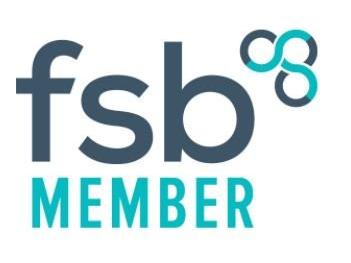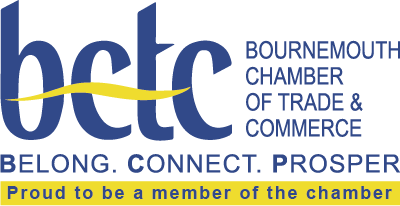SEO For Law Firms
Get new clients for your law firm from your website.
Many people build a highly trusting relationship with their solicitor. That trust doesn't always transfer to the law firm itself and those customers will follow the lawyer they have worked with to a new law firm.
As such law firms can experience a high rate of customer churn as their lawyers move jobs. To ensure consistent growth law firms need to do two things.
- Attract a steady stream of new customers
- Build brand awareness and credibility of their firm.
Overt Digital Media will help to build your law firms’ brand awareness and credibility as well as optimise your website so that your customers can find you easily.
5* Client Testimonials

Very impressed with the service provided by Overt Digital Media. Jon was very knowledgeable and guided me through the whole process. I am extremely happy with the finished website. Can't recommend Jon or Overt Digital Media highly enough.
Law Firm - Highcliffe
Slide title
My firm have recently engaged Jon and his team to design and develop a new website for us and to deal with monthly maintenance etc. We had a very limited window until our existing website disappeared! Very scary! Jon has far exceeded our expectations and has delivered every step of the way. I cannot recommend him highly enough. Brilliant service!!
Law Firm - Ringwood
Search engine optimisation for Law Firms

Law Firm SEO
Law firms are very diverse in their operations. There are law firms that specialise in certain areas, such as family law or property law or employment law etc. Others are more generalist and offer a range of legal services.
Law firms also operate in a very competitive market; not only do they compete with other law firms, but they also compete with individual solicitors, who have much lower costs, and with companies on the periphery of the legal industry, such as conveyancers and will writing companies.
Often it is the first person or company that a potential customer speaks to that wins the business.
How to get more customers for your law firm
It is no revelation that most people will turn to the internet to find service providers, and law firms are no exception. This is true even if your company has been recommended or is a familiar name from the local high street. Your potential customers will conduct research on your business online, and your website is fundamental to allowing them to do that.
But what if someone can't find your website?
It is not a pleasant scenario for any business owner that someone who has been referred to them cannot find your website and ends up contacting another law firm that happens to rank higher than you on Google.
How can you improve your rankings on Google?
This is where search engine optimisation or SEO comes in. Put simply, SEO is the process undertaken to make your website more visible and easier to find on search engine results pages (SERPs)
What do I need to do next?
Book a free SEO audit on your website. This will allow you to understand how your website is performing and provide advice on how to improve your rankings.
Why is SEO important for Law Firms
Law firms rely on their websites to attract new clients and showcase their expertise. In a competitive market, it's important for a law firm's website to stand out and be easily found by potential clients. This is where Search Engine Optimization (SEO) comes in.
SEO is the process of improving the ranking of a website on search engines like Google. By optimizing various elements of a website, such as its content and structure, a law firm can improve its ranking for relevant keywords and attract more qualified visitors.
Here are a few reasons why SEO is important for law firms:
Attracting qualified leads: When potential clients search for legal services online, they are more likely to choose a law firm that appears at the top of the search results. By optimising their website for relevant keywords and search terms, law firms can attract potential clients who are actively searching for the legal services they offer.
Establish credibility: A law firm's website is often the first point of contact for potential clients. By having a well-designed, professional website that appears at the top of search results, a law firm can establish credibility and build trust.
Stand out from the competition: The legal industry is highly competitive, and it can be difficult for a law firm to stand out from the crowd. By investing in SEO, a law firm can differentiate itself from its competitors and attract more qualified leads.
Overall, SEO is an essential part of any online marketing strategy for a law firm. By investing in SEO, a law firm can increase its online presence, attract qualified leads, establish credibility, and stand out from the competition.
Our Four Point Process to get your Law Firm to the Top of Google
01 SEO Goal Setting
The first part of implementing a successful SEO strategy is to understand your Law Firm's goals and objectives.
We also need to understand who your potential customers are and why they choose your law firm over your competition
02 Keyword Research
Once we have a good understanding of your law firm's goals we will then start the process of researching the keywords and search terms that your potential customers type into Google when they are looking for your services.
These are the terms we will optiise your website for.
03 On-Page SEO
There is lots to do on your website to successfully get your law firm to the top of Google.
The key aspects of SEO are:
- Page titles and descriptions
- Headings
- Page content
- Blogging
04 Off-Page SEO
A successful SEO strategy doesnt stop there we will also look to build backlinks, list your law firm with online directories and make use of social media and your Google Business Profile to increase your rankings
Contact Us to Get Your Law Firm to the Top of Google
We will get back to you as soon as possible.
Please try again later.
-
Does SEO work for Law Firms
Yes, SEO can work for law firms. SEO can help law firms rank higher in search engine results pages (SERPs), helping them to attract more website visitors. SEO can also help to improve the visibility and click-through rates (CTRs) of law firm listings in SERPs.
-
How does SEO work for Law Firms
SEO (Search Engine Optimization) is the practice of improving the ranking of a law firm's website on search engines such as Google, Bing, and Yahoo.
The higher the ranking, the more likely people are to find the website. Several methods are used to improve SEO, including optimizing the website content, adding keywords to the website, and building links to the website.
-
What are the benefits of SEO for Law Firms
There are many ways in which law firms can benefit from SEO. SEO can help law firms to attract more visitors to their website, which can lead to more clients and more business.
SEO can also help to improve the visibility of a law firm's website in search engines, which can lead to more people finding the firm when they search for legal services.
Finally, SEO can help law firms build trust and credibility with potential clients, ultimately leading to more business.
Read our latest blogs to get SEO tips for your law firm
Contact us to grow your law firm
We will get back to you as soon as possible.
Please try again later.
Benefits of Search Engine Optimisation for Law Firms
SEO has many benefits for all types of businesses, including law firms and solicitors. It will:
- Improve the number of people visiting your website
- Improve the number of enquiries generated by your website
- Improve the quality of the leads you receive
Law is a high trust industry and customers build relationships with the individual solicitor they have dealt with and will often follow them to a new law practice if that solicitor moves to a new law firm.
Search Engine Optimisation will build your law firms’ brand awareness and credibility and mitigate the risk of this happening.
Ranking & content strategy to get you to the top of Google
So how do you ensure that you are at the top of Google and make it easy for your customers can find you online
Getting to the top of Google
Search engine optimisation or SEO is the process of improving your website's ranking for specific search queries or keywords. The SEO process involves many different functions and tasks, which can be broken down into three sections:
- SEO Content Strategy
- On-Page SEO
- Off-Page SEO
- Technical SEO
SEO focused Content Strategy
Content is essential if you want to implement a successful SEO strategy. It is best to plan this out a few months in advance to ensure that you stay on message and consistently focus on the keywords you want to rank for.
At Overt Digital Media, we will work with you to define your content strategy, which will include the following aspects:
- Identify your customer personas
- Making a list of key topics
- Identifying the main keywords for each topic
- Building web pages for each topic
- Blogging schedule
Keywords
Keywords, or the search terms, you want to rank for are the foundation of your SEO strategy. There is a balancing act between the number of searches a particular keyword receives, the likelihood of being able to rank for it in a reasonable timeframe, and the commercial intent of the person searching.
Put simply:
- Is the keyword worth ranking
- Are you likely to be successful
- Is the person searching for it looking to purchase something
For example, the term "Law firm" gets around 10,000 searches per month and is hard to rank for, but there are also many reasons why someone would search that term. It could be that they want to hire a solicitor but equally, it could be a student looking for a work placement.
As part of our SEO service, we will research the best keywords for your law firm that can generate enquiries for your services.
On-Page SEO
On page SEO is about ensuring that you have the correct content on your website in the correct places.
Not all content is given equal credence by Google. Different areas need to be optimised. These include:
Page Meta Titles
These are the names of your pages and give both the website visitor and Google information on the web page's content. It should include the keywords or search terms you want to be found for. For example, a good Meta Title would be "Family Law Specialist Serving Bournemouth Christchurch & Poole"
Page Meta Descriptions
The webpage Meta Description expands on the meta title and provides context for the website visitor. Expanding on the example above, a good meta description could be, "Family lawyers specialising in all aspects of family law including divorce, child access…"
Page Headings
Page headings are the titles on your page that introduce the various sections of each web page. They should contain all of the keywords that you want to rank for on Google.
There is a set structure that needs to be adhered to. For example, you can only have one Heading 1 or H1 tag, which will be the main title of the web page.
This will be followed by Heading 2s, or H2s, which will be the different sections and H3s, H4s etc which will be paragraph titles. For example, your H1 may be "Full service law firm servicing clients in Bournemouth, Christchurch and Poole". Your H2s may be "Family Law", "Criminal Law" and "Civil Litigation," etc.
Headings are important both from an SEO perspective but also from a user experience perspective as they break up the text on your website and allow your website visitors to find the information that is relevant to them.
Alt Tags
Alt Tags are the descriptions of the images on your website. They are there for screen readers that help visually impaired people navigate and use your website. They also have an SEO benefit and should all be updated.
Paragraph Text
The paragraph text or the standard copy on your website is the regular copy on your website. It is also vital, both from an SEO perspective and to convince potential customers of your expertise and capability. From a search engine optimisation perspective, the paragraph text also needs to contain the keywords you want to rank for.
Blogging
Blogging is an extremely valuable SEO tool. It can provide a significant bonus for your search engine optimisation strategy as it will contain many of the search terms that you want to rank for along with important context around those keywords. Importantly, it can also increase your website's conversion rate, i.e. convincing more visitors to your website to get in touch. This is because it allows you to demonstrate your expertise and experience.
Blogging has other benefits for your law firm than just SEO. It will provide content for other forms of marketing such as social media channels and email marketing.
Off-Page SEO
Off-page SEO is the practice of improving the visibility and rankings of your website by building backlinks and citations.
As part of any search engine optimisation strategy, we work to build several links back (backlinks) to your website. This can be done in several ways including reaching out to legal industry organisations and bloggers to mention your law firm on their website and include a link to your website.
Additionally, listing your law firm in online directories with your company's name, address, phone number and website address also positively impacts your rankings in search engines. There are literally 100s of online directories, but some impact your rankings better than others. We specifically target directories that focus on law firms and the legal industry. You should also target directories that are geographically specific to your area.
Google Business Profile
Another aspect of your Off-page SEO strategy is your Google Business Profile. This is the free profile you can set up in Google to provide information on your law firm, such as your location, contact information, opening hours etc. It is essential to your search engine optimisation strategy to update your Google Business Profile regularly.
Review
Reviews are also important for your SEO efforts. Encouraging customers to leave you with a positive review will positively impact your rankings.
Technical SEO
Technical SEO is the practice of you ensuring that your website runs smoothly on all devices.
Mobile devices are particularly important as Google will penalise your website's rankings in search results if your website isn't mobile-friendly.
Another common error is having images that are too big and slow your website down.
At Overt Digital Media we will ensure your website is fast and engaging on all devices.
SEO FAQs
FAQs from Law firms and solicitors about Search Engine Optimisation
-
Do I need an SEO service for my law firm?
If you are looking to grow your law firm or add an additional practice area then, search engine optimisation will help you build awareness outside of your current customer base.
-
How long will it take to get to the top of Google with your SEO service
This will depend entirely on how many other law firms are trying to get to the top of Google for the keywords you are targeting. Generally speaking, you should allow at least 3 -6 months before you start seeing some good results.
-
Can I do SEO myself
Yes, absolutely you can and there are many books and guides to help you. However, there is a very steep learning curve. You will definitely see better and quicker results by using a specialist SEO agency or search engine optimisation consultant.
Search engine optimisation takes time and effort, so ask yourself, whether you want to take time out from growing your law firm to learn and conduct another complex task such as SEO.
-
How much does Search engine optimisation cost
There is a range of packages for SEO in the marketplace. They tend to start from around £200pm up to £1000s per month.
-
Do I need a new website or can you optimise my current one
Normally, you will not need a new website and we can optimise your current one to achieve your goals. However, if there are lots of technical issues that require fixing it may be cheaper and quicker to build a new website for your law firm.




QUICK LINKS
OUR SERVICES
VAT Registration Number GB 455758354
Company number 12460236
All Rights Reserved | Overt Digital Media


